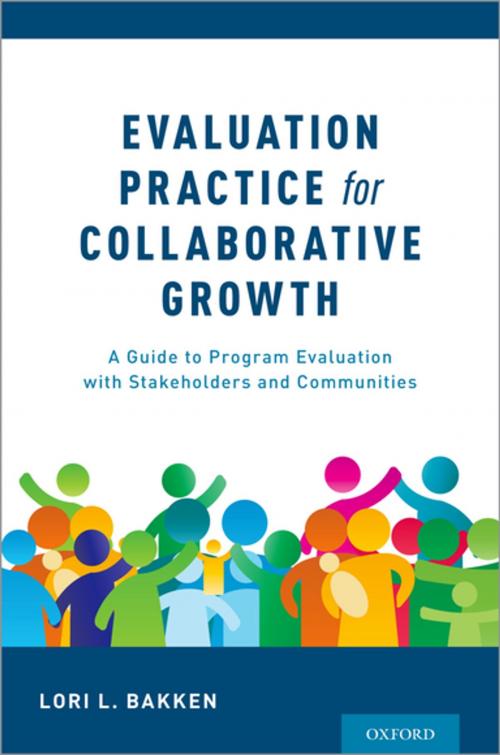Evaluation Practice for Collaborative Growth
A Guide to Program Evaluation with Stakeholders and Communities
Business & Finance, Industries & Professions, Nonprofit Organizations & Charities, Nonfiction, Social & Cultural Studies, Social Science, Social Work| Author: | Lori L. Bakken | ISBN: | 9780190885397 |
| Publisher: | Oxford University Press | Publication: | June 4, 2018 |
| Imprint: | Oxford University Press | Language: | English |
| Author: | Lori L. Bakken |
| ISBN: | 9780190885397 |
| Publisher: | Oxford University Press |
| Publication: | June 4, 2018 |
| Imprint: | Oxford University Press |
| Language: | English |
Evaluation Practice for Collaborative Growth highlights the approaches, tools, and techniques that are most useful for evaluating educational and social service programs. This book walks the reader through a process of creating answerable evaluations questions, designing evaluation studies to answer those questions, and analyzing, interpreting, and reporting the evaluation's findings so they are useful and meaningful for key stakeholders. The text concludes with a chapter devoted to the shifting landscape of evaluation practice as it faces complex systems and issues that are shaped by society. Additionally, the author provides a list of knowledge and skills needed to adapt to a changing landscape and encourages organizations to use evaluation as a mechanism for learning and adapting to change. Her orientation toward community-based approaches and social justice prevail throughout the book's content and align well with a reader's desire to be inclusive and accountable in programing efforts. Nonprofit leaders, social science professionals, and students will find this book helpful for understanding basic program evaluation concepts, methods, and strategies.
Evaluation Practice for Collaborative Growth highlights the approaches, tools, and techniques that are most useful for evaluating educational and social service programs. This book walks the reader through a process of creating answerable evaluations questions, designing evaluation studies to answer those questions, and analyzing, interpreting, and reporting the evaluation's findings so they are useful and meaningful for key stakeholders. The text concludes with a chapter devoted to the shifting landscape of evaluation practice as it faces complex systems and issues that are shaped by society. Additionally, the author provides a list of knowledge and skills needed to adapt to a changing landscape and encourages organizations to use evaluation as a mechanism for learning and adapting to change. Her orientation toward community-based approaches and social justice prevail throughout the book's content and align well with a reader's desire to be inclusive and accountable in programing efforts. Nonprofit leaders, social science professionals, and students will find this book helpful for understanding basic program evaluation concepts, methods, and strategies.















